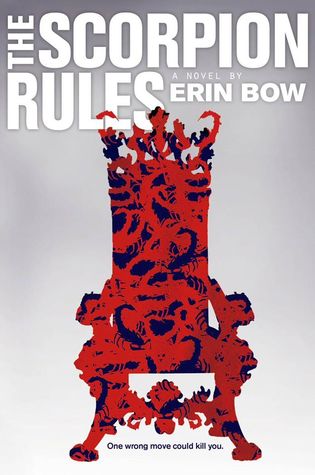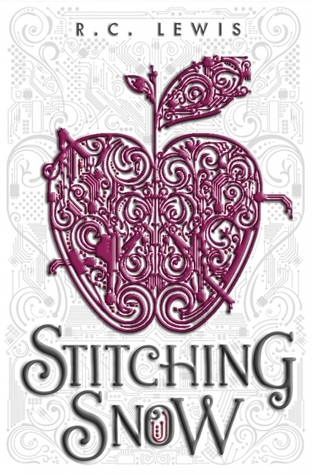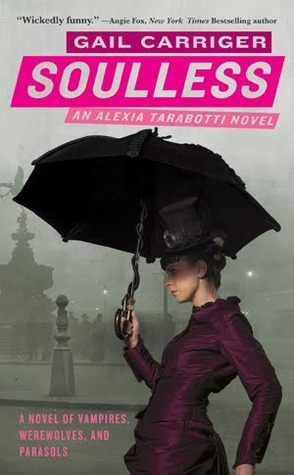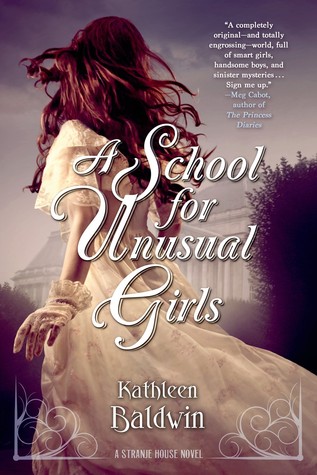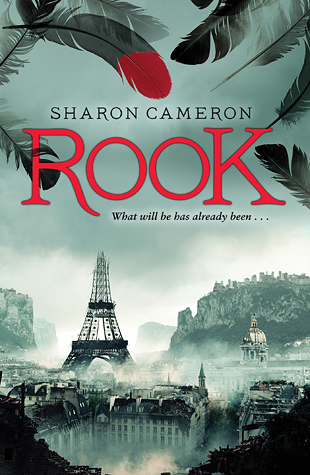Title: The Scorpion Rules
Author: Erin Bow
Publication Date: September 22nd 2015
Publisher: Simon and Schuster Children's Publishing
Rating: 2.5 out of 5
*ARC provided by NetGalley*
Goodreads Blurb:
A world battered by climate shift and war turns to an ancient method of keeping peace: the exchange of hostages. The Children of Peace - sons and daughters of kings and presidents and generals - are raised together in small, isolated schools called Preceptures. There, they learn history and political theory, and are taught to gracefully accept what may well be their fate: to die if their countries declare war.
Greta Gustafsen Stuart, Duchess of Halifax and Crown Princess of the Pan-Polar Confederation, is the pride of the North American Prefecture. Learned and disciplined, Greta is proud of her role in keeping the global peace, even though, with her country controlling two-thirds of the world’s most war-worthy resource — water — she has little chance of reaching adulthood alive.
Enter Elián Palnik, the Prefecture’s newest hostage and biggest problem. Greta’s world begins to tilt the moment she sees Elián dragged into the school in chains. The Prefecture’s insidious surveillance, its small punishments and rewards, can make no dent in Elián, who is not interested in dignity and tradition, and doesn’t even accept the right of the UN to keep hostages.
What will happen to Elián and Greta as their two nations inch closer to war?
I requested this ARC because the blurb seemed intriguing. But after I read the first chapter, I started questioning if this was actually the book that the blurb was describing. The style of this book is highly esoteric and unlike anything I've encountered before.
Let us first examine the characters, who are oh so serious and proper, with the exception of Elián and Talis who provided much needed comical relief to the reader. Greta, the princess, was respected by everyone and acknowledged by her Precepture ("Amish" settlements where the royalty learn to live off the land) as the "leader". She is the MC but her relationships with the other characters are non-existent at best. She is almost like a robot herself, and although she is portrayed as such for a reason, it did not help me connect to the story what-so-ever. The other hostages Xie, Thanda, Grego, and Han are obviously important, being Greta's closest companions, but there was startlingly little emphasis placed on their thoughts or actions. Elián, however, was portrayed as refreshingly real, but by the end, him and all the other characters seemed so helpless in their society and it was a little frightening. Talis. The Ruler of the World. He was so pathetically childish that I found myself ridiculing the others for following his lead. There was not enough information given to substantiate everyone's profound fear of Talis; yes he did blow up a city (which, btw, was so random and made no sense) but he is so silly.
The world-building is so lacking; although we know there are more countries, they are never talked about. This book is apparently supposed to be a science fiction (dystopian) novel but it never had that vibe; in judging dystopians, the book I use to scale is 1984 by George Orwell. This book lacked the "reality" that was present in 1984; it simply DID NOT feel real and felt entirely made up, almost as if it was some type of fantasy in which powerful robot dudes had the power to blow up cities.
The best aspect of this book was not the characters, or the plot, or even the backstory/history (which was barely explained unless Greta felt like spouting random facts). The best aspect of this book was the science, in which there could have been more a lot more detail. But, the field of AI is quite interesting and arguably, AI is a misnomer for the robots in this book considering those robots are uploaded with a human "essence", for lack of a better word. I thought the idea of immortalizing a human in a non-organic body quite similar to that of The Adoration of Jenna Fox by Mary E. Pearson.
The plot was entirely one directional, and uncomplicated. There were no side stories, no surprising twists, and absolutely no depth. I found it extremely stodgy and lackluster- I wanted a story that engaged me and appealed to either my emotions or brain. This story did not have enough science (political or technological) or enough action/dialogue/life to satisfy my expectations. However, if straightforward, uncomplicated books work for you, you will definitely enjoy this novel.
The 2.5 rating I gave this book is based on it's ideas that had the potential to captivate. It is also based on the fact that it was highly unique and took a new (although uninteresting) approach on AI as well as dystopian fiction.
This book was not my type of book; it was dull and I found it hard to appreciate the futuristic world presented. But, like I stated before, the style was esoteric and I'm sure this book will appeal to those who look for and appreciate the subtler connotations to the story. One of those interesting nuances that I appreciated is the fact that the use of hostages is an ancient practice (which is stated in the blurb, not the book... but an interesting fact nevertheless). But even with those connotations, it is hard to naturally enjoy this book. However, if I read this with the intent to uncover those connotations and use my critical thinking skills to pick apart the plot, then maybe what I would find would be thought-provoking. But alas, that was not my approach and consequently I was quite frustrated with the lack intrigue and life in this book.

